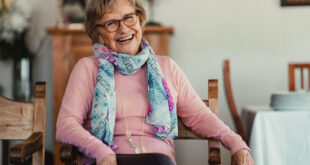By Mike Milstein
John Patterson, a New Zealand Positive Ageing Ambassador, has done much to promote positive ageing throughout the country and, in particular, in his own community of Christchurch. John was one of the presenters at the seminar held in Nelson that was organized to help the Marlborough, Nelson and Tasman Councils prepare for their positive ageing policy reviews this year.
John believes that “positive ageing starts when you are born, not after you are 65. What you do at every stage of life affects the next stage. Get a good education and you have a better chance of getting a good job. Maintain better health, which comes with more income, and you will have a more positive retirement. The way you are now is dependent upon the way you were in your younger days. We need policies that encourage younger people to become interested in positive ageing. Ageing happens to all of us.”
“The big thing is your attitude. I know old people in the 40s and young people in the 80s. Chronological age is irrelevant. When I was 63 I bought a bike. People in the office said ‘what are you doing with a bike at your age?’ I’m 73 now and I’m still riding the bike.”
John is concerned about the low level of older people’s involvement in the work force and as volunteers, particularly given the rapidly increasing number of older people in the country. For example, he works for Pegasus Health in Christchurch, which is an organization of all the community’s general practitioners. “Their average age is about 50. If all of them retire at the traditional retirement age we are in big trouble. Nurses are a species that will be extinct within a few years unless we do something now. That’s just the health sector. We have enormous skill shortages. The government needs to be looking at the resources of people in their 60s and 70s. Many of them are skilled, educated, fit, able, and with stacks of experience and know how. We need to tap that resource, not just worry about their retirement money and health issues. Staying active, they’ll stay healthy!”
He says it doesn’t need to be any thing dramatic. For example John and his wife grand parented while their daughters “went back into teaching, which was a field that needed personnel. Things like that, which we may take for granted, are part of giving back. Retirement doesn’t mean you are finished. Given the skill shortages there is a need for us to participate. Besides, our kids have lots of responsibilities without having to take care of our generation.”
John believes that the councils need to “involve their communities in the positive ageing policy review, in much the same way the Office for Senior Citizens in Wellington does, conferring with older citizens and coming up with the best policies possible.” He also emphasizes that the councils need to differentiate between policies for those in their 60s and 70s, many of whom are still able to take care of themselves and give back to society, and policies for those who are older and may need more support.
Note: This article, which was published in The Leader, Nelson, NZ, on May 21, 2009, summarizes an interview aired by Fresh FM that was conducted by Dr. Annie Henry and sponsored by Age Concern, Nelson. If you want to share your thoughts with the Conscious Ageing Network (CAN) or wish to know when interviews will be aired and when CAN articles will appear in the Leader, send an email to agewell@ihug.co.nz.







Join the Discussion
Type out your comment here:
You must be logged in to post a comment.